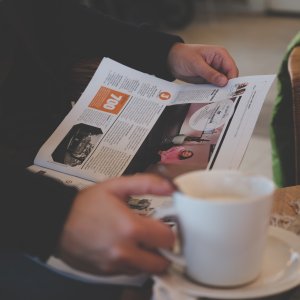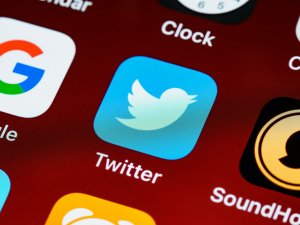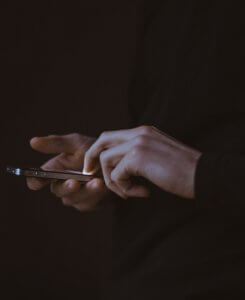- Media & Privacy
- Corporate reputation management

Longer Reads
Can someone record you without your permission?
You may be surprised to learn that recording someone without their consent is not necessarily unlawful.
2 minute read
Published 22 April 2020
Key information
- Specialisms
- Private Wealth
Recording without consent
In recent reports of litigation concerning the Barclay family, it emerged that parties to litigation between family members had covertly recorded Sir Frederick Barclay at the Ritz hotel over a period of several months, without his consent. This covert audio surveillance was calculated to capture personal, confidential, sensitive and legally privileged information.
It can of course be tempting to record conversations or events when you are going through a dispute or litigation, but is it legal?
Although being the subject of surveillance or covert recording is a significant infringement of a person’s liberty it is fairly rare for the criminal law to be engaged, save in the case of arbitrary surveillance by the state or where the use of recording equipment falls into the area of harassment or stalking.
Secret recording laws
There is a myriad of laws, regulations and guidance relating to covert recordings. There are legitimate reasons for some recordings to take place. Some CCTV systems for example may be valuable tools that contribute to public safety and security and protect both people and property. Body cameras worn by police are another example.
The use of a secret recording device by private individuals however is strong evidence of improper conduct – and in the Barclay case is alleged to have been designed to gather confidential, private information to assist the defendants in the litigation and in their personal and professional objectives.
A recording may be unlawful (under civil law) if it constitutes a misuse of private information, a breach of confidence, a breach of GDPR or Data Protection regulations. One of the questions for the court is whether the individual had a reasonable expectation of privacy in the particular circumstances.
Consideration is then given to whether this potential breach of privacy is overridden by other factors. For example, journalists may have the benefit of data privacy exemptions or may claim legitimacy due to public interest arguments. It is more difficult for an individual to argue these sorts of reasons to justify covert recordings.
It is generally necessary to consider the purpose of any covert recording to decide its legitimacy. In a number of recent cases the courts have found in favour of permitting covert recordings to be used in evidence. The mere fact that the recording was covert does not make it inadmissible.
The use of covert recording has also featured in a number of recent employment law cases, often used by an employee to record meetings with senior executives.
One of the main considerations is whether the recording is relevant to any issues in the court proceedings. While the courts have said that covert recordings are “distasteful” or “reprehensible” they have sometimes then gone on to allow them in evidence on the basis that they have “relevance and probative value”. A judge in one recent case said that “covert recording has become a fact of professional life”. The trend seems to be that such recordings, although objectionable, are increasingly admissible as evidence in court.
In the Barclay litigation the proceedings are at an early stage, so no decision has been made and the outcome is uncertain. It is alleged that there was no reasonable or innocent explanation for the behaviour of the defendants in using a secret recording device and if the case proceeds the courts may decide that the behaviour was unlawful and make an
appropriate award of damages and other relief. Very often these family disputes are settled privately and the matter is never decided by the court.
However, in cases where covert recordings are used to provide evidence in the course of proceedings, it seems that such evidence may be admissible if it is relevant to the issues, despite the improper method of obtaining the evidence.
The issue of covert recordings is likely to remain extremely contentious, but in many cases, their use as evidence in court proceedings appears to have been sanctioned by the courts and this is only likely to increase the use of such questionable methods. It is though high-risk conduct and may expose the perpetrator to damages and other penalties.
This article was first published on EPrivateclient in April 2020.
Related content
Longer Reads
Can someone record you without your permission?
You may be surprised to learn that recording someone without their consent is not necessarily unlawful.
Published 22 April 2020
Associated sectors / services
Recording without consent
In recent reports of litigation concerning the Barclay family, it emerged that parties to litigation between family members had covertly recorded Sir Frederick Barclay at the Ritz hotel over a period of several months, without his consent. This covert audio surveillance was calculated to capture personal, confidential, sensitive and legally privileged information.
It can of course be tempting to record conversations or events when you are going through a dispute or litigation, but is it legal?
Although being the subject of surveillance or covert recording is a significant infringement of a person’s liberty it is fairly rare for the criminal law to be engaged, save in the case of arbitrary surveillance by the state or where the use of recording equipment falls into the area of harassment or stalking.
Secret recording laws
There is a myriad of laws, regulations and guidance relating to covert recordings. There are legitimate reasons for some recordings to take place. Some CCTV systems for example may be valuable tools that contribute to public safety and security and protect both people and property. Body cameras worn by police are another example.
The use of a secret recording device by private individuals however is strong evidence of improper conduct – and in the Barclay case is alleged to have been designed to gather confidential, private information to assist the defendants in the litigation and in their personal and professional objectives.
A recording may be unlawful (under civil law) if it constitutes a misuse of private information, a breach of confidence, a breach of GDPR or Data Protection regulations. One of the questions for the court is whether the individual had a reasonable expectation of privacy in the particular circumstances.
Consideration is then given to whether this potential breach of privacy is overridden by other factors. For example, journalists may have the benefit of data privacy exemptions or may claim legitimacy due to public interest arguments. It is more difficult for an individual to argue these sorts of reasons to justify covert recordings.
It is generally necessary to consider the purpose of any covert recording to decide its legitimacy. In a number of recent cases the courts have found in favour of permitting covert recordings to be used in evidence. The mere fact that the recording was covert does not make it inadmissible.
The use of covert recording has also featured in a number of recent employment law cases, often used by an employee to record meetings with senior executives.
One of the main considerations is whether the recording is relevant to any issues in the court proceedings. While the courts have said that covert recordings are “distasteful” or “reprehensible” they have sometimes then gone on to allow them in evidence on the basis that they have “relevance and probative value”. A judge in one recent case said that “covert recording has become a fact of professional life”. The trend seems to be that such recordings, although objectionable, are increasingly admissible as evidence in court.
In the Barclay litigation the proceedings are at an early stage, so no decision has been made and the outcome is uncertain. It is alleged that there was no reasonable or innocent explanation for the behaviour of the defendants in using a secret recording device and if the case proceeds the courts may decide that the behaviour was unlawful and make an
appropriate award of damages and other relief. Very often these family disputes are settled privately and the matter is never decided by the court.
However, in cases where covert recordings are used to provide evidence in the course of proceedings, it seems that such evidence may be admissible if it is relevant to the issues, despite the improper method of obtaining the evidence.
The issue of covert recordings is likely to remain extremely contentious, but in many cases, their use as evidence in court proceedings appears to have been sanctioned by the courts and this is only likely to increase the use of such questionable methods. It is though high-risk conduct and may expose the perpetrator to damages and other penalties.
This article was first published on EPrivateclient in April 2020.
Associated sectors / services
- Media & Privacy
- Corporate reputation management
Need some more information? Make an enquiry below.
Enjoy reading our articles? why not subscribe to notifications so you’ll never miss one?
Subscribe to our articlesMessage us on WhatsApp (calling not available)
Please note that Collyer Bristow provides this service during office hours for general information and enquiries only and that no legal or other professional advice will be provided over the WhatsApp platform. Please also note that if you choose to use this platform your personal data is likely to be processed outside the UK and EEA, including in the US. Appropriate legal or other professional opinion should be taken before taking or omitting to take any action in respect of any specific problem. Collyer Bristow LLP accepts no liability for any loss or damage which may arise from reliance on information provided. All information will be deleted immediately upon completion of a conversation.
Close


































